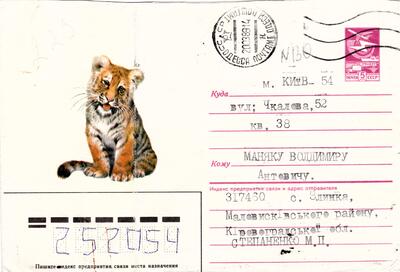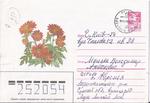Letter sent from: Village of Zlynka, Mala Vyska raion, Kirovohrad oblast
Letter describes events in (1932-1933): location unclear, likely the same as mailing address: Village of Zlynka, Mala Vyska raion, Odesa oblast
Current location name: Village of Zlynka, Mala Vyska raion, Kirovohrad oblast
Maria Stepanenko’s daughter Oksana recorded her mother's testimony. Maria was 13 in 1933. Her father was a middle peasant. There were five in the household, and some adult daughters, her sisters, lived separately. Their household was “completely robbed” when the collective farms were organized. Father did not want to join and escaped from the village with two older children, hoping to avoid exile and to ensure that the activists would not harm the youngest daughter and the mother. They were given a requisition norm that they could not fulfill, and thus were left with nothing. Mother was arrested, jailed, and sentenced to 25 years, and never returned, perhaps believing that everyone at home had died.
Maria was left alone and barely survived. Her older sister, who lived separately, did not help her and gave
her no food. She and the siblings who returned home after some time caught malaria. Her brother joined the collective farm to keep the family alive. Maria also had to work in the field. The father died of malaria. The bodies of the dead were dumped into a ditch filled with water. The moment they put his body into a freshly dug pit near the entrance to the cemetery, more bodies were dumped into her father's grave. She mentions mass deaths and incidents of cannibalism.
Ukrainian transcription available.



